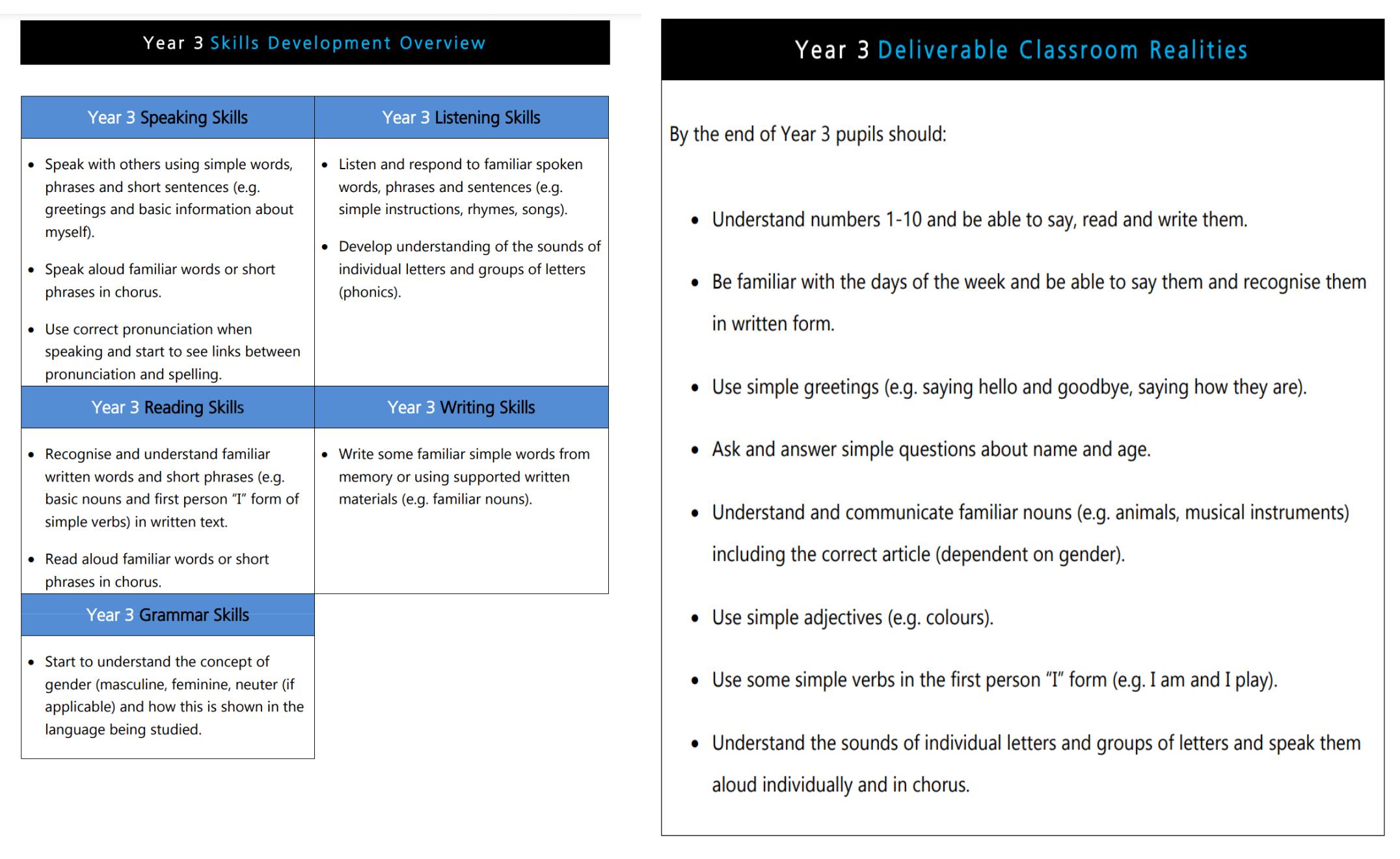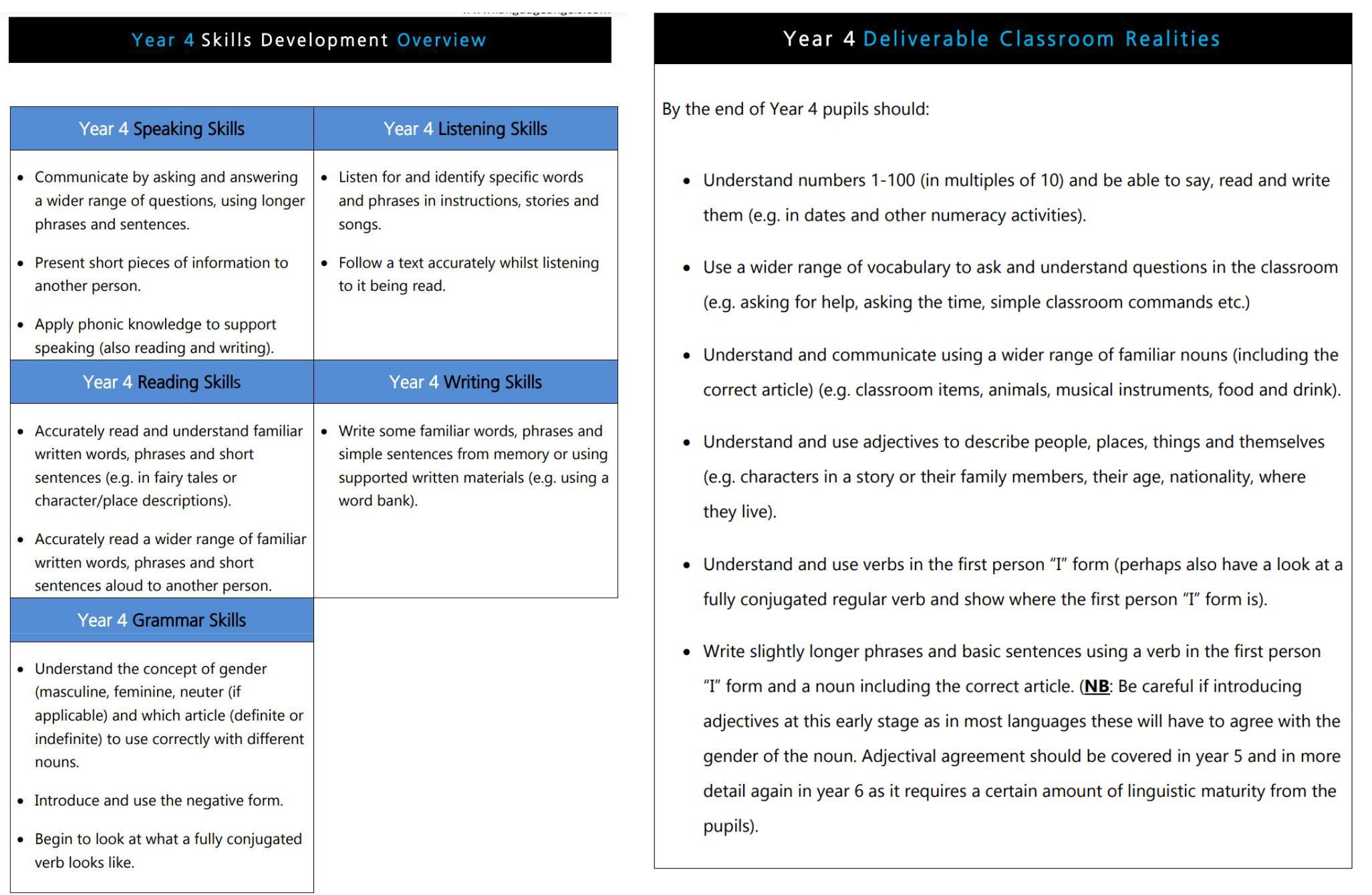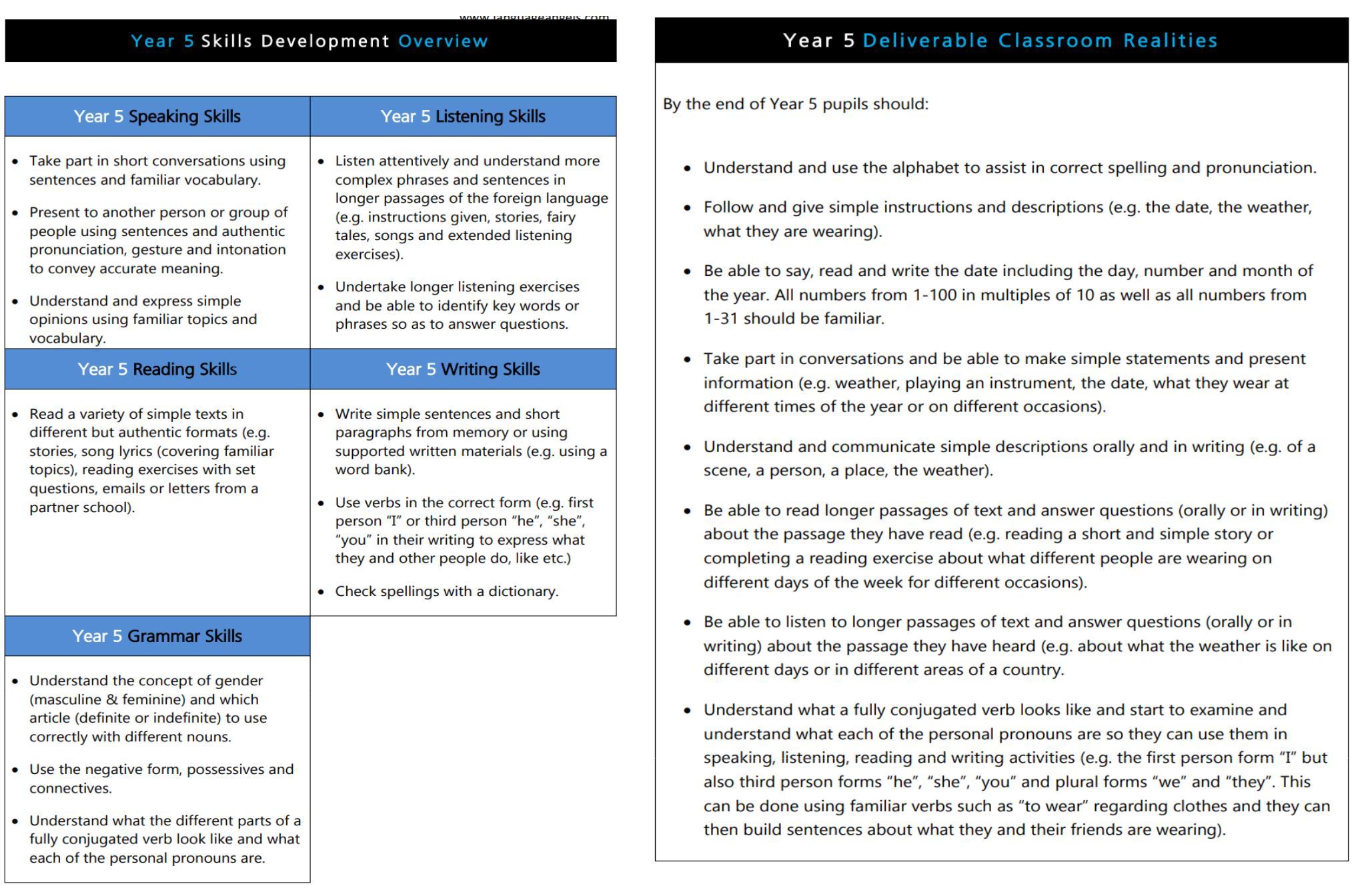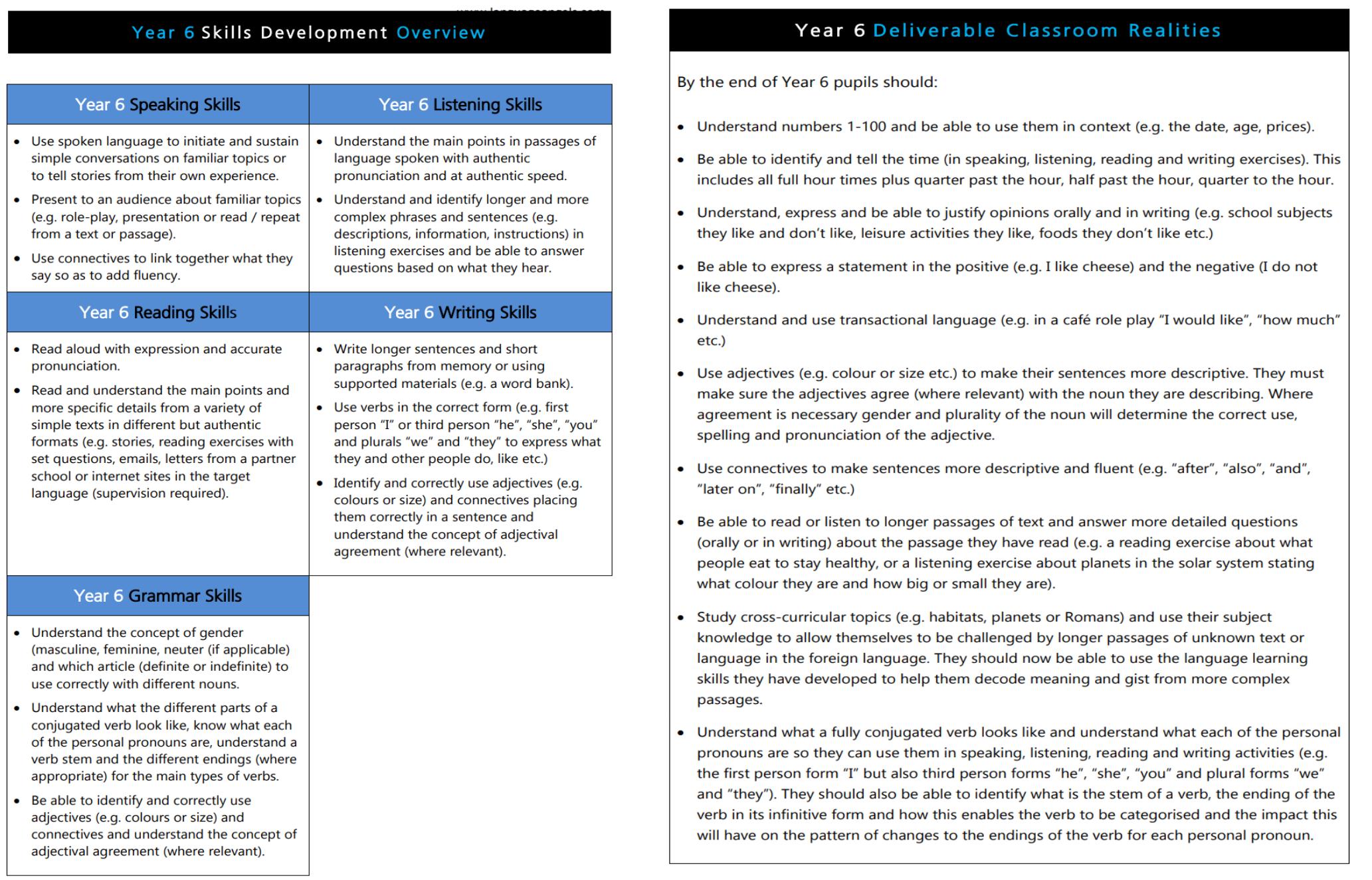School Aims
Foreign Language Curriculum Milestones
2022-23
The Bishop Martin Curriculum
The Bishop Martin Curriculum is guided by our 3 core aims, linked to our values:
To understand the awe and wonder of God’s love and aspiration for them to succeed in life
To instil in every child a lifelong love of learning that will equip them to succeed in an ever-changing modern world.
To encourage them to fully engage in the learning process so that they ‘take ownership’ of their learning.
Our Foreign Language Promise:
We teach Spanish throughout school from Foundation Stage, through Key Stage One and then at the statutory age in Key Stage Two. The four key language learning skills; listening, speaking, reading and writing will be taught and all necessary grammar will be covered in an age-appropriate way across the school.
We follow the 'Language Angels' scheme of work and resources to ensure we offer a relevant, broad, vibrant and ambitious foreign languages curriculum that will inspire and excite our pupils using a wide variety of topics and themes. All children will be expected to achieve their full potential by encouraging high expectations and excellent standards in their foreign language learning.
Our intent is that all pupils will develop a genuine interest and positive curiosity about foreign languages, finding them enjoyable and stimulating. Learning a second language will also offer children the opportunity to explore relationships between language and identity, develop a deeper understanding of other cultures and the world around them with a better awareness of self, others and cultural differences.
Purpose of Study: The National Curriculum
Learning a foreign language is liberation from insularity and provides an opening to other cultures. A high-quality languages education should foster pupils’ curiosity and deepen their understanding of the world. The teaching should enable pupils to express their ideas and thoughts in another language and to understand and respond to its speakers, both in speech and in writing. It should also provide opportunities for them to communicate for practical purposes, learn new ways of thinking and read great literature in the original language. Language teaching should provide the foundation for learning further languages, equipping pupils to study and work in other countries.
National Curriculum Aims:
The national curriculum for languages aims to ensure that all pupils:
understand and respond to spoken and written language from a variety of authentic sources
speak with increasing confidence, fluency and spontaneity, finding ways of communicating what they want to say, including through discussion and asking questions, and continually improving the accuracy of their pronunciation and intonation
can write at varying length, for different purposes and audiences, using the variety of grammatical structures that they have learnt
discover and develop an appreciation of a range of writing in the language studied.
School Defined Milestones
‘Milestones’, ‘Statements’, ‘Vocabulary’ and ‘Content’
In Foreign Language at Bishop Martin, the Milestones on which pupils are assessed against are within the school Tracking system, ‘Target Tracker’ as the defined ‘Statements’.
Teachers use the ‘exemplars’ and ‘Progress Indicators’ alongside the ‘Statements’ to guide the evidencing of pupils reaching these Milestones
Teachers plan and teach Foreign Language in line with the Content and Vocabulary expectations as set out by the Subject Leader and this can be found within this document
Where the vocabulary in the Milestone Statements deviates from the expectations laid out by the Subject Leader, the Subject Leader takes precedent
Milestones:
End of KS1:
I can follow simple instructions like stand up and sit down. (levantate y sientate).
When listening to stories, rhymes or songs I can join in with repeated sections and identify particular phonemes and words.
I can repeat sentences heard and make simple adaptations to them.
I can use simple adjectives such as colours and sizes to describe things orally.
I can begin to understand Spanish phonics.




Autumn Term
Half Term 1
Foreign Language Units of Work
EYFS AND KS1 Teaching Units
Half Term 2
Reception
Year 1 Year 2
Los Saludos (C)
Yo Aprendo Espanol (E)
Salutations I’m learning Spanish
Los Números (E)
(Numbers)
Los Colores (C/ E) Bajo El Mar (The Colours) (Under Ther Sea)
Spring Term
Half Term 1
Half Term 2
Los Saludos (C)
Los Días (C) Phonetica (C)
Salutations Days of the Week Spanish Phonics
Summer Term
Half Term 1
Half Term 2
Los Meses (C) La Fruta (E) (Numbers) (Months of the Year) (The Fruits)
Los Números (E)
Canciones Infantiles (E)
(Nursery rhymes)
Las Estaciones KS1 (E) Los Transportes (Seasons) (Transport)
Los Animales (E)
Los Instrumentos (E) (Animals) (Musical Instruments)
Year 3
Autumn Term
KS2 Teaching Units
Year 4
Year 5
Year 6
Half Term 1 Los Comandos En Clase (C) Los Comandos En Clase (C) Mi Clase (I) Los Comandos En Clase (C)
(Classroom commands) (Classroom commands) (In the classroom) (Classroom commands)
Revision of core vocab- colours; Me Presento (I) En El Colegio (P)
numbers; days; months. (Presenting myself) (At School)
Half Term 2 Puedo (I can) (E) Mi Casa (I)
Core vocab: Numbers; days and Los Verbos Irregulares (P) (My home) Months Irregular verbs
¿Qué fecha es hoy? (I)
(What is the date?)
Spring Term
Half Term 1 La historia de la antigua Gran La Familia (I) ¿qué tiempo hace? (I) El Fin De Semana (P)
Bretaña (E) (The Family)
(Ancient Britain)
Half Term 2 Las Formas (E)
(The shapes)
Summer Term
Half Term 1 Los Romanos (I)
(What is the weather like?) (The Weekend)
¿Tienes una mascota? La Ropa (I) La Comida Sana (P)
(Do you have a pet?) Clothes (Healthy Lifestyle)
Hábitats (I) Las Olimpiadas (I) Los Planetas (P)
(The Romans) (Habitats) (The Olympics) (The Planets)
Half Term 2 Caperucita Roja (E)
Ricitos De Oro y Los Tres Osos Los Verbos Regulares (P) Yo En El Mundo (P)
(Little Red Riding Hood) (I) Regular Verbs (Me in the World)
Goldilocks and The Three Bears
NB:
Core vocabulary such s classroom instructions; asking and answering questions about name/ age etc to run throughout each year group.
Cultural links to be made where appropriate e.g. Spanish schools; food; climate.
Teaching of phonics and grammar linked to units to run throughout each year group.
Other materials can be used to support the teaching and learning if these units and units can be modified to meet the needs of the class.
Vocabulary
As this subject is heavily vocab-based, there is a vocabulary sheet for each unit of work which can be found on the Language Angels website. This can also be shared on the class webpage for each new unit of work.

